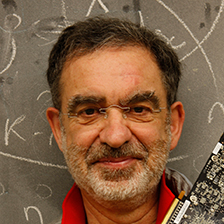
Tomaso Poggio
院士
美国人文与科学院
活动家是第三方嘉宾邀约平台。可根据演讲议题、会议日期、活动预算等要求,为您提供该领域内专业嘉宾演讲邀约服务。您可准备好活动信息后,联系客服电话:18911802888(工作日9时至18时,仅邀约嘉宾出席活动,其他需求勿扰)
The birth of artificial-intelligence research as an autonomous discipline is generally thought to have been the month long Dartmouth Summer Research Project on Artificial Intelligence in 1956, which convened 10 leading electrical engineers — including MIT’s Marvin Minsky and Claude Shannon — to discuss “how to make machines use language” and “form abstractions and concepts.”
The problem, of course, turned out to be much more difficult than AI’s pioneers had imagined. In recent years, by exploiting machine learning — in which computers learn to perform tasks from sets of training examples — artificial-intelligence researchers have built impressive systems. Two of my former postdocs — Demis Hassabis and Amnon Shashua — are behind the two main success stories of AI, AlphaGo better than human player at Go and Mobileye at the forefront of vision-based autonomous driving. Some of the present excitement is due to realistic expectations for further progress. but there is also a substantial amount of hype. A substantial effort in basic research is needed to develop a true science of intelligence.
I will briefly review today’s engineering of intelligence and some of the mathematics underlying it, the mathematics of learning from data. I will also sketch the vision of the MIT Center for Brains, Minds and Machines which strives to make progress on the science of intelligence by combining machine learning and computer science with neuroscience and cognitive science
